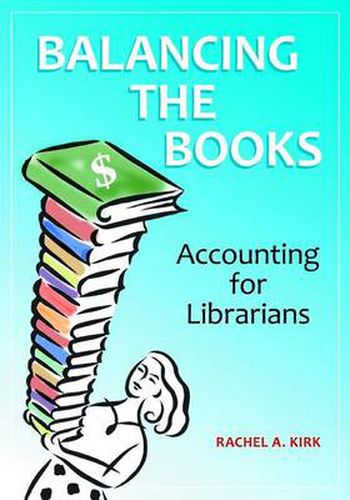Readings Newsletter
Become a Readings Member to make your shopping experience even easier.
Sign in or sign up for free!
You’re not far away from qualifying for FREE standard shipping within Australia
You’ve qualified for FREE standard shipping within Australia
The cart is loading…






Any competent librarian can have good accounting skills-after all, attention to detail, correct classification, and effective documentation are essential to both kinds of tasks. This book covers accounting concepts, budgeting, and government regulations that pertain to libraries.
Balancing the Books: Accounting for Librarians fills the gap that exists in literature on library acquisitions accounting. By covering essential accounting concepts, budgeting, government regulations that pertain to libraries, as well as accounting measurement methods and their relationship to assessment, this book effectively addresses the questions often posed by acquisition librarians pertaining to accounting. It also directs readers to other authoritative resources for help on accounting topics outside the scope of the work.
The book begins by addressing the specific issues involved with library accounting. Section two provides the reader with a fundamental grasp of accounting principles by providing readers with definitions, examples, and templates to help them understand and apply accounting standards to their unique situations. In section three, the reciprocal relationship between accounting and budgeting is examined, and the author further explores how budgeting can be used by librarians in deciding what they want to measure and what those metrics should be. The final section covers important regulations and standards-for example, those promulgated by the Government Accounting Standards Board (GASB) and the Financial Accounting Standards Board (FASB).
$9.00 standard shipping within Australia
FREE standard shipping within Australia for orders over $100.00
Express & International shipping calculated at checkout
Any competent librarian can have good accounting skills-after all, attention to detail, correct classification, and effective documentation are essential to both kinds of tasks. This book covers accounting concepts, budgeting, and government regulations that pertain to libraries.
Balancing the Books: Accounting for Librarians fills the gap that exists in literature on library acquisitions accounting. By covering essential accounting concepts, budgeting, government regulations that pertain to libraries, as well as accounting measurement methods and their relationship to assessment, this book effectively addresses the questions often posed by acquisition librarians pertaining to accounting. It also directs readers to other authoritative resources for help on accounting topics outside the scope of the work.
The book begins by addressing the specific issues involved with library accounting. Section two provides the reader with a fundamental grasp of accounting principles by providing readers with definitions, examples, and templates to help them understand and apply accounting standards to their unique situations. In section three, the reciprocal relationship between accounting and budgeting is examined, and the author further explores how budgeting can be used by librarians in deciding what they want to measure and what those metrics should be. The final section covers important regulations and standards-for example, those promulgated by the Government Accounting Standards Board (GASB) and the Financial Accounting Standards Board (FASB).